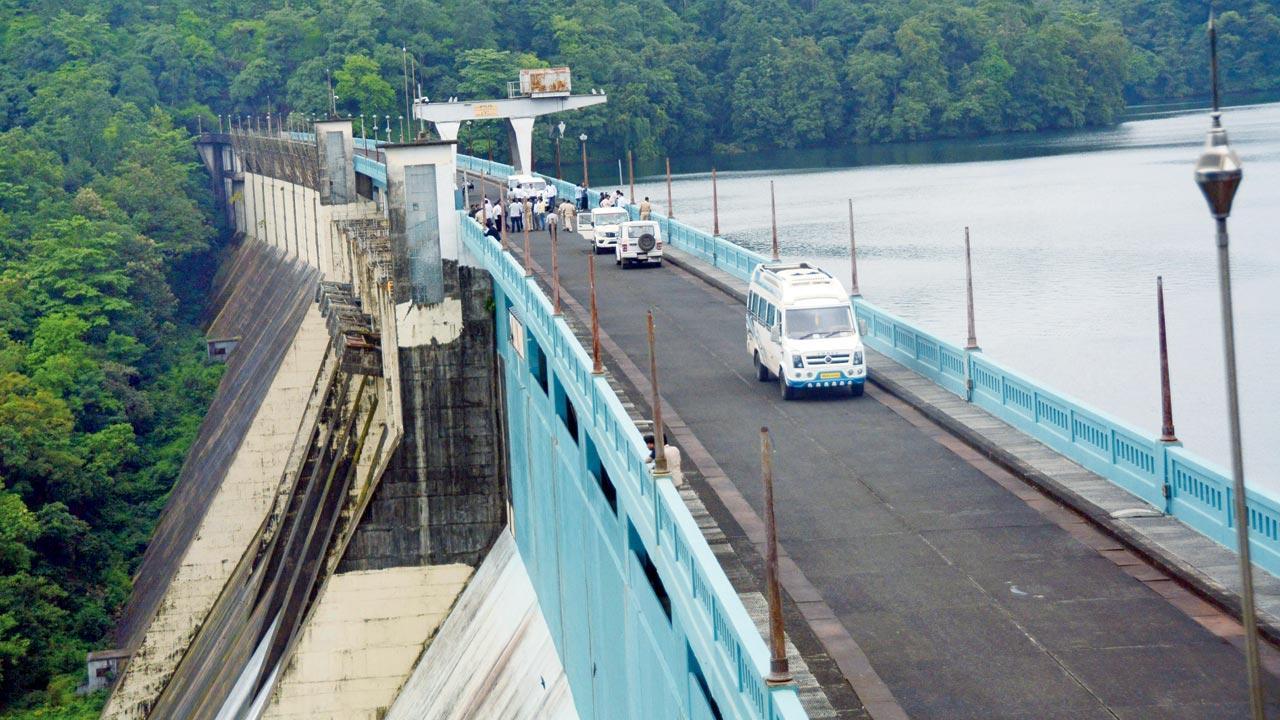Sustainable water management key to land restoration, say experts

Bhatsa dam supplies 3,900 MLD to the city. Pic/Sayyed Sameer Abedi
Ahead of World Environment Day (WED) on June 5, a group of environmental organisations has called upon all political parties to set aside their differences and focus on water protection, conservation, harvesting, and enhancing the green cover to protect the land.
ADVERTISEMENT
“‘Land Restoration, Desertification, and Drought Resilience’ is the theme for WED,” NatConnect Foundation pointed out in an open letter to politicians, emphasising that water conservation is the first step toward achieving this goal.
“The action must begin from the top and ensure that the message of #JalNahinKalNahin flows from parliament to panchayats,” said NatConnect director B N Kumar. The Alliance for Rivers in India (AFR), Watchdog Foundation, Kharghar Hill and Wetlands, and Save Belapur Hills have joined the drive #HarvestWaterToConserveLand.
“Sadly, our politicians do not realise the importance of hills that help us in rainfall and holding water,” Kumar said.
“We need good officers and firm decision-makers,” said Indore-based Sanjay Gupta, Co-founder of AFR.
“Rainwater harvesting is a critical measure in combating water scarcity, and by capturing and storing rainwater, we can reduce dependence on depleting groundwater sources,” stated Godfrey Pimenta of Watchdog Foundation.
“Political ideologies may have separated politicians during the recently concluded elections, but environmental issues could unite them post-results. Regarding Mumbai, the entire metropolitan region should be treated as one comprehensive unit for environmental protection, beginning with water conservation,” Pimenta added.
In this context, Kumar highlighted the lift irrigation project successfully executed by the Karnataka Government, which pumps water about 70 km from Bengaluru’s sewage treatment plants (STP) to Kolar. This STP water is then pumped into Kolar lakes, helping recharge groundwater tables and providing water for irrigation.
“The state government is now planning to extend this scheme to all its major cities and recycle used water for irrigation,” Kumar said.
Mumbai collects over 1,700 million liters per day (MLD), Navi Mumbai about 450 MLD, and Kalyan Dombivli Municipal Corporation about 210 MLD. Most of the treated water is currently drained into the sea, which is a waste. NatConnect suggested that the Maharashtra government take the first step towards the effective use of every drop of water.
“The Mumbai Metropolitan Region (MMR) has 18 urban areas, including nine municipal corporations, and urban development must focus on the effective use of recycled water. Similarly, India has over 310 cities and 5,100 towns, all of which need to take water conservation and recycling seriously. This involvement should flow from the prime minister and the chief ministers down to their ministers, MPs, MLAs, zilla parishad members, and finally the panchayat sarpanch and members,” Kumar said.
Concurring with this idea, Godfrey Pimenta, director of Watchdog Foundation, said, “Our focus must extend to crucial initiatives such as rainwater harvesting, expanding greenery, and ensuring the sustainable management of our natural resources, including space, air, earth, and hills.”
“Increasing urban greenery not only enhances the aesthetic value of our cities but also contributes significantly to air purification, temperature regulation, and biodiversity,” Pimenta said.
“Land conservation must also be related to hill protection. Hills must be strengthened with green cover, and we should not allow encroachments and hill cutting at any cost,” said Himanshu Katkar of Save Belapur Hills forum.
Jyoti Nadkarni of Kharghar Hill and Wetland questioned the need for themes to remind us of our actions and responsibility for the planet. “It is time to act on checking land degradation and soil erosion because “Our land is our future. We are solely responsible for its conservation .”
June 5
World Environment Day
 Subscribe today by clicking the link and stay updated with the latest news!" Click here!
Subscribe today by clicking the link and stay updated with the latest news!" Click here!







